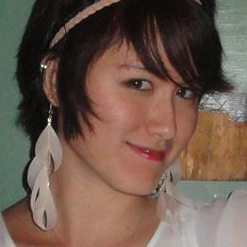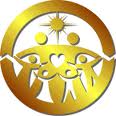
The Divine Principle from a Unification Thought perspective
The Second Blessing, part 6
Last time, I’d reflected on Unification Thought’s explanation of “order” within a family. And I’d discovered how important order was for me to relate more deeply with my extended family in the Philippines, particularly with my elders and juniors. I found a heightened sense of place and belonging there, which I’d not experienced living independently in New York. And years later, that understanding and experience of order was significant in my relationships with my martial arts teachers.
But I had questions. Was this just a cultural experience, limited to and relevant to only certain societies and not others? Was it a remnant of societies in agrarian “developing’ nations, which would eventually be shed as they became postmodern, developed ones? Would it adjust and dissolve as societies became less patriarchal/matriarchal and more democratic? It wasn’t completely satisfying to conform to this model if my emotional pleasure depended upon my comfortable ignorance.
Fortunately, I found these disturbing questions answered in the next section of Unification Thought’s Ethics, entitled “Ethics, Morality, and the Way of Heaven”.
The “Way of Heaven” 天道
The phrase “Way of Heaven” is a literal translation of the Korean words Cheon Dō. Cheon (天) means “heaven” and Dō (道) means “way”. (The word Dō can mean “path” or “way” or “art”.) It’s a fundamental idea that runs through Oriental thought, that there are underlying laws of organization which allow the universe to function properly and beautifully. Confucius derived his social ethics from the example of legendary Chinese eras which were upheld as models of orderliness and prosperity.
Unification Thought uses the term Cheon Dō / Way of Heaven in a more concrete manner — there is indeed a higher way, but it’s not only something we grasp through inspired intuition about legends. Rather, it is clearly seen in the actual structure of created things:
The law that governs the universe is called the Way of Heaven. This law refers to the harmonious give and receive action between subject and object. Applied to the human individual, the law of the universe manifests itself as morality, and applied to the family, it manifests itself as ethics. Hence, the law of the universe, and moral and ethical laws are in a relationship of correspondence. A society is the extension of a family. Accordingly, social ethics is to be established, in correspondence to the Way of Heaven. • New Essentials of Unification Thought, p. 147–148
The “harmonious give and receive action” in ethics can be clearly seen in these following two figures provided in the Theory of Ontology:
In this figure, the Law of Heaven is seen in the relationships between the heavenly bodies. There are “vertical” relationships between satellite bodies and their parent bodies; and there are “horizontal” relationships between similar heavenly bodies, i.e., the planets.
The Law of Heaven manifests in human society as families, shown in this second figure. And just as there are vertical and horizontal relationships in the universe, they are in the family as well.
 Unification Thought puts it this way:
Unification Thought puts it this way:
From the perspective of composition the human being is a microcosm, or a miniature of the universe. Considered from the aspect of order, the family is a miniature of the universe, and the universe is an expanded image of the family.
• New Essentials of Unification Thought, p. 146
Personally, I was deeply impressed by this unusual perspective. I could now understand that the human family was the original embodiment of order, and that the breathtaking order in the greater families of solar systems, galaxies and the universe was patterned after the original idea of the human family. This flipped my former understanding on its head, and highlighted the unusual and remarkable importance Unification Thought gives to the human being: we are not to follow the patterns in the universe as mimics, but rather we were originally the very source of these cosmic patterns! The textbook puts the value of this understanding in perspective:
Such vertical, horizontal, and individual values are not particularly new as virtues. They were taught by Confucius, Buddha, Jesus, Muhammad, and others. Today, however, these values have lost their power to persuade people because their philosophical ground has been ambiguous. For that reason, we seek to revive these traditional values by providing them with a firm philosophical basis.
• New Essentials of Unification Thought, p. 229
So I stopped wondering if order in the family was an outdated notion, the residue of a feudal society. I could appreciate much more deeply my experience with my extended family in the Philippines. And I gained confidence that my happiness wasn’t false comfort obtained by holding on to outdated ideas destined to fade away. I now understood that my happiness was the beautiful outcome of honoring the law of heaven in my relationships with my own family members. But I was also alarmed by this other example in the textbook:
…if one of the planets of the solar system were to deviate from its orbit, not only would that planet be unable to maintain its own existence, but great calamities in the solar system would also ensue. Likewise in a family and in a society, if people violate ethical laws, that can only give rise to destruction and disorder.
• New Essentials of Unification Thought, p. 148
 And so I could understand what is happening to many families today: by violating the “law of Heaven” — that is, the law of harmonious give and receive action and its various characteristics — the beautiful orderly structure of relationships is broken. And so damage results when family members hurt each others’ hearts. It can indeed be catastrophic when husbands, wives, or children violate the law of heaven and break their family’s bonds of heart.
And so I could understand what is happening to many families today: by violating the “law of Heaven” — that is, the law of harmonious give and receive action and its various characteristics — the beautiful orderly structure of relationships is broken. And so damage results when family members hurt each others’ hearts. It can indeed be catastrophic when husbands, wives, or children violate the law of heaven and break their family’s bonds of heart.
There’s one final point that’s important to make. Whereas the terms ethics and morality are often used interchangeably, Unification Thought defines them differently, in keeping with its idea of the connectedness of things as well as their individuality. It defines ethics this way:
…the norm for family life, or ethics, is the manifestation in a miniature form of the Way of Heaven. Therefore, the family norm is exactly the Way of Heaven within the condensed scope of the family.… ethics is the norm which family members observe toward one another as connected beings.
• New Essentials of Unification Thought, p. 284
Whereas morality has to do with each individual person:
On the other hand, morality is the norm of behavior for an individual to observe. …Every heavenly body in the universe (forms) an inner four position foundation through the harmonious give and receive action between the subject and object elements within it. By the same token, internally within a human being, harmonious give and receive action must be made between the spirit mind and the physical mind, thus forming an inner four position foundation. The norm of behavior in forming this inner four position foundation is morality.
• New Essentials of Unification Thought, p. 285
We’ll pick up this important difference in later articles. But for now, I’ll just say that the ideas of ethics, morality and the way of heaven may at first seem more academic and less related to our real emotional lives. But the reason I wanted to take time to look at them is that they’re actually very important ways of understanding our hearts’ connections to each other. With clearer understanding can come better practice, and there’s not much more important in life than becoming better at love; wiser at being loving persons. ❦













